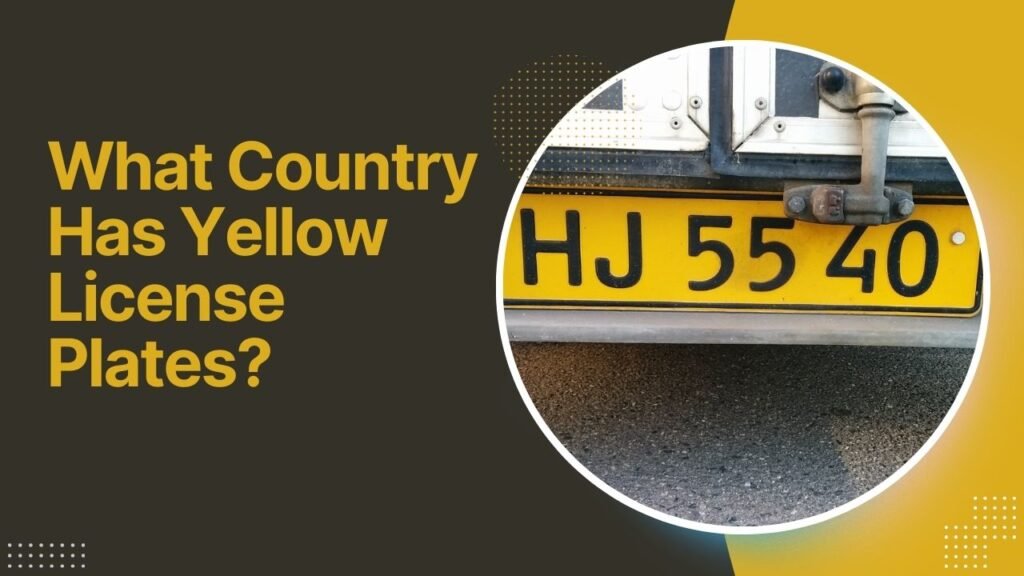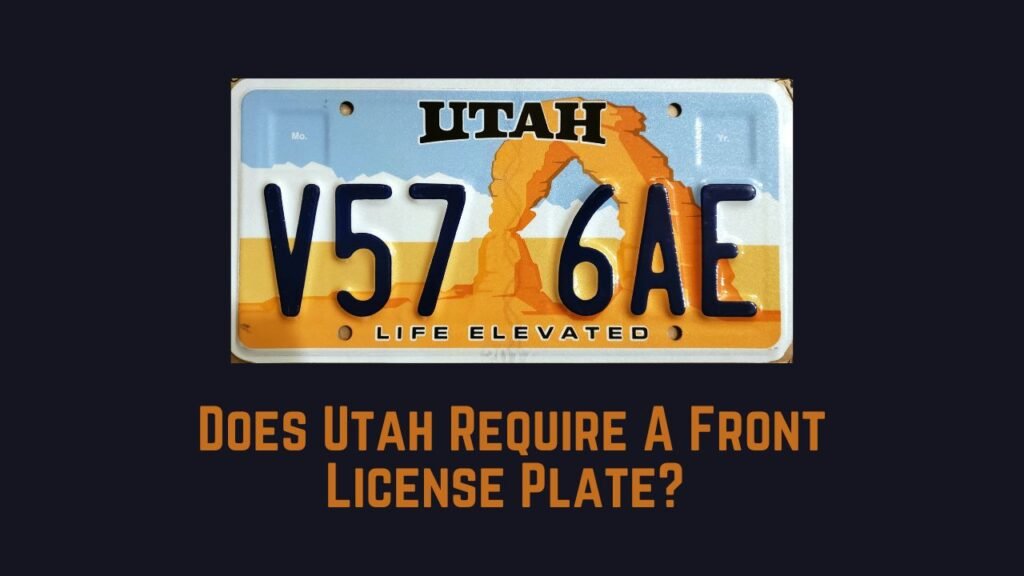Do Trailers Need License Plates? Trailers generally require license plates, but the need varies by state and trailer type. Regulations often depend on whether the trailer is used for personal or commercial purposes.
Trailers serve as a vital tool for various purposes, from hauling heavy equipment and transporting recreational vehicles to moving personal belongings.
Whether you own a small utility trailer or a massive RV trailer, understanding the legal requirements surrounding trailer registration and license plates is crucial.
The question, “Do trailers need license plates?” often arises among trailer owners and prospective buyers alike.
This article dives deep into state regulations, the influence of trailer type and purpose on license requirements, and what you need to do to stay compliant on the road.
Contents
What Is a Trailer?
Definition of a Trailer
A trailer is a non-motorized vehicle designed to be towed by a motorized vehicle. It is primarily used to transport goods, equipment, or recreational items, depending on the type.
Trailers are attached to the towing vehicle through a hitch and can vary widely in size, from small cargo trailers to expansive RV trailers.
Types of Trailers
Different types of trailers are available, and each serves unique purposes. Here’s a look at common trailer types and their typical uses:
- Utility Trailers: Commonly used by homeowners and small business owners, utility trailers transport small loads, such as lawn equipment, building materials, or general cargo.
- Boat Trailers: Designed specifically for hauling boats, these trailers are typically licensed due to their regular presence on public roads. [Do Trailers Need License Plates?]
- RV Trailers: These include travel trailers, fifth wheels, and toy haulers. RV trailers often double as living spaces and are usually licensed for road travel.
- Horse and Livestock Trailers: Built to safely transport animals, these trailers may require specific registration depending on state regulations.
- Commercial Trailers: Used primarily in business operations, these trailers often need more rigorous licensing and registration.
Do Trailers Need License Plates?
State-Specific Requirements
The answer to whether trailers need license plates depends largely on state laws, which can vary significantly.
For instance, in California, all trailers need a license plate, regardless of their size or purpose.
However, states like Arizona may exempt small trailers or those used only on private property from requiring a plate. [Do Trailers Need License Plates?]
Generally, states follow certain guidelines based on trailer type, use, and weight, but consulting your specific state’s DMV or transportation office is essential for accurate information.
Trailer Type and Licensing Rules
The trailer type is a primary determinant of licensing needs. Here’s a closer look at how different trailer types are treated:
- Utility Trailers: Most states require these to be registered and licensed, especially if they exceed a specific weight. Some states may waive the license requirement for trailers below 1,000 pounds, while others require all utility trailers to be registered.
- Boat Trailers: Due to their intended use on public roads, boat trailers generally need to be licensed. However, if a boat trailer is used only for storage on private property, some states may allow an exemption. [Do Trailers Need License Plates?]
- Recreational Trailers (RVs): RVs are often treated like motor vehicles in terms of licensing, especially if they are used for regular travel. In states where RV trailers are required to have a separate registration, failing to comply could result in fines or other penalties.
- Commercial Trailers: Commercial trailers, which include freight, flatbeds, and utility trailers used for business, generally require registration and licensing in every state. Due to the increased usage on public roads, states impose stricter licensing requirements on commercial trailers to ensure public safety.
Personal vs. Commercial Use
Many states differentiate between personal and commercial trailers. [Do Trailers Need License Plates?]
Commercial trailers often face higher fees and stricter registration rules, while personal trailers may have more lenient requirements.
For example, a trailer used to transport equipment for a small landscaping business may need a commercial plate, while the same type of trailer used solely for personal projects might not.
Factors Affecting Trailer Plate Requirements
Weight and Size
Weight is often a key criterion in determining whether a trailer needs a plate. States set weight thresholds, above which trailers must be registered.
Trailers weighing over 3,000 pounds often need plates in states like Florida and Texas, while lighter trailers may be exempt in certain areas. [Do Trailers Need License Plates?]
Frequency and Distance of Use
In some states, the frequency and distance a trailer is used on public roads can influence licensing requirements.
For example, trailers used exclusively on farms or within a small town may be exempt from needing a license plate if they rarely travel on highways.
Additionally, seasonal trailers such as those for snowmobiles or ATVs may not need a plate when stored during off-seasons.
Trailer Ownership and Insurance
Ownership transfer, such as when buying or selling a trailer, often necessitates registration and plate issuance.
It’s also worth noting that insurance providers may require a trailer to be registered for certain types of coverage.
Licensed trailers provide an added layer of liability protection, and owners of unlicensed trailers may face complications in securing insurance.
How to Obtain a Trailer License Plate
Documentation Requirements
To apply for a trailer license plate, you will need a few key documents. [Do Trailers Need License Plates?]
Most DMVs require proof of ownership, such as a bill of sale, a title, and sometimes a vehicle identification number (VIN) inspection.
If your trailer doesn’t have a VIN, some states may assign one during the registration process.
Registration Process
The process for registering a trailer is usually similar to registering a vehicle. You’ll visit your local DMV, fill out the appropriate forms, and provide the required documents.
Many states also allow online registration, streamlining the process for trailer owners. [Do Trailers Need License Plates?]
Registration fees vary and are typically based on the trailer’s weight, use, and state-specific regulations.
Some states also charge annual fees for trailer license renewals, which may increase if the trailer is used commercially.
Renewal and Inspection Requirements
While private-use trailers may only require periodic renewal, commercial trailers often face annual renewal requirements and additional inspections.
Inspections for trailers ensure they meet safety standards, especially for trailers carrying heavy loads or traveling frequently on highways.
Missing renewal deadlines may result in fines or restrictions on future registrations, so staying on top of trailer renewals is essential. [Do Trailers Need License Plates?]
Penalties for Operating an Unlicensed Trailer
Traffic Violations and Fines
Driving a trailer on public roads without the required license plate can lead to significant penalties. Law enforcement can issue tickets, fines, and even impound trailers that aren’t compliant with local laws.
In some states, fines for unlicensed trailers can range from $100 to $500, depending on the type of trailer and the nature of the infraction. [Do Trailers Need License Plates?]
Liability and Insurance Implications
If an accident occurs involving an unlicensed trailer, liability may fall more heavily on the trailer owner, especially if the trailer was unregistered due to non-compliance with state regulations.
In addition, insurance providers may deny coverage for unlicensed trailers, potentially leaving the owner responsible for all damages in an accident. [Do Trailers Need License Plates?]
See Also: Can I Make My License Plate Black?
Frequently Asked Questions
Do all states require trailer plates?
No, not all states mandate trailer plates. Some states may offer exemptions based on factors like trailer size, weight, or specific usage. It’s essential to check with your local DMV to confirm your state’s rules.
Are boat trailers exempt from licensing in any states?
Yes, some states exempt boat trailers from licensing, especially if they are small or used primarily on private property. However, boat trailers that regularly travel on public roads typically need to be licensed. [Do Trailers Need License Plates?]
How do I register my trailer if it doesn’t have a title?
If your trailer lacks a title, you may need a bill of sale and additional documentation to prove ownership. Some states require a VIN inspection, which can often be arranged through the DMV or a third-party inspector.
Are there special license plates for commercial trailers?
Many states issue special plates for commercial trailers, which may involve higher fees or additional inspection requirements. Commercial plates are often required for trailers used in business operations.
Can I use my trailer across state lines without a plate?
Typically, no. Trailers without a license plate may be non-compliant in other states, potentially leading to fines or other legal complications. A licensed trailer provides smoother interstate travel.
Conclusion: Do Trailers Need License Plates?
Navigating the complexities of trailer licensing requirements can be overwhelming, especially with each state’s specific regulations. [Do Trailers Need License Plates?]
In general, trailers of all types and sizes require a license plate if used on public roads, although exceptions exist for lighter trailers or those with specific purposes, such as farm use.
By checking your state’s requirements and ensuring your trailer is properly registered, you can avoid potential fines, reduce liability risks, and travel with peace of mind.
Whether for personal or commercial use, obtaining a license plate for your trailer is a straightforward process that helps keep you compliant and safe on the road.

I’m Karsyn Marsh, a blogger from a small village in Texas. I enjoy writing about many topics, and right now, I’m focused on license plates. I share helpful information and facts on LicensePlateFacts.com.



